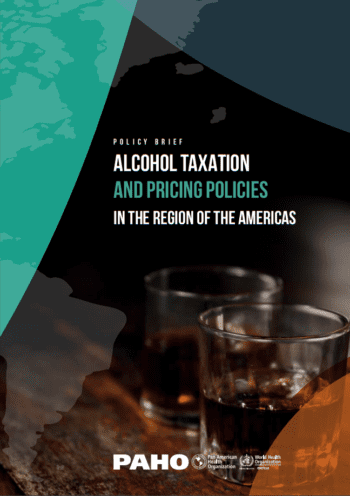New Policy Brief: Alcohol Taxation in the Americas
A new policy brief on alcohol policy by the Pan American Health Organization (PAHO) has found alcohol taxation to be the most effective in reducing alcohol consumption.
The brand new policy brief highlights pervasive alcohol harm across the region of the Americas. a
- Alcohol is a psychoactive substance which caused 379,000 deaths (5.4% of all deaths) in the Americas in 2016.
- It was responsible for 3.3% of all deaths due to communicable, maternal, prenatal, and nutritional conditions;
- It was responsible for 3.8% of all deaths due to noncommunicable diseases (NCDs); and
- It was responsible for 22.4% of all injury deaths in the Americas.
According to the Policy Brief: Alcohol Taxation and Pricing Policies in the Region of the Americas, alcohol taxation was found to save 22 international dollars per Disability Adjusted Life Year (DALY) in low and lower-middle income countries. The saving was 41 international dollars per DALY for middle and high income countries.
Modelling for the WHO Global Business Plan for Noncommunicable Diseases has revealed, the return on investment of the alcohol “best buy” policies (increases in taxation, comprehensive restrictions on exposure to alcohol advertising, promotions and sponsorship as well as restrictions on availability) in low- and lower-middle-income countries is for every $1 invested, a return of $9.13.
As per the report, consumption of alcohol is largely driven by affordability. In turn, the affordability of alcohol is determined by the price of the alcoholic beverages in relation to other products, rates of inflation, and consumers’ incomes.
Thus, alcohol excise taxation (taxes which only apply to alcohol) is the most cost-effective policy to prevent alcohol-related harms by reducing alcohol consumption, delaying and/or preventing the initiation of drinking,” states the report, as per PAHO.

